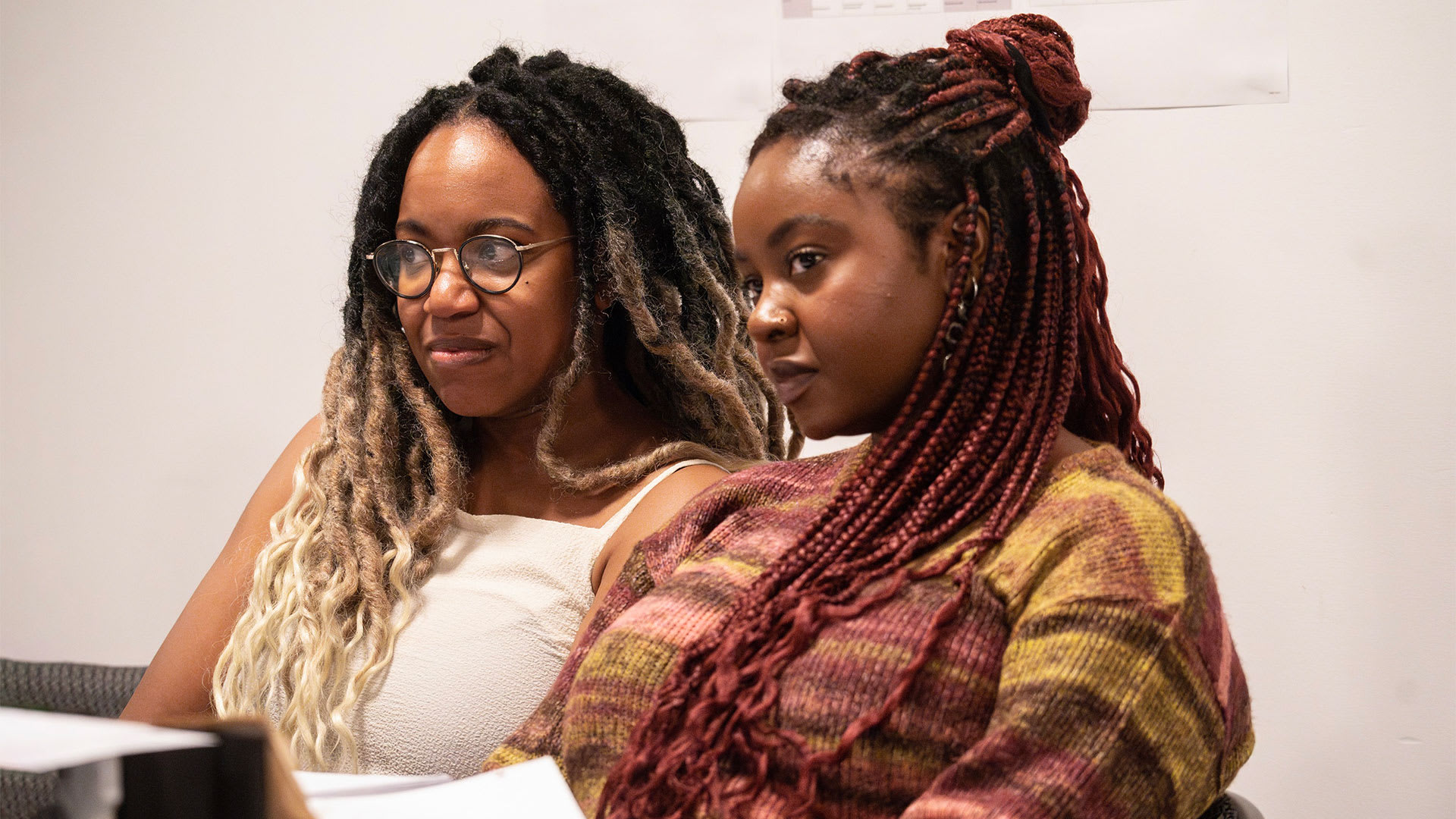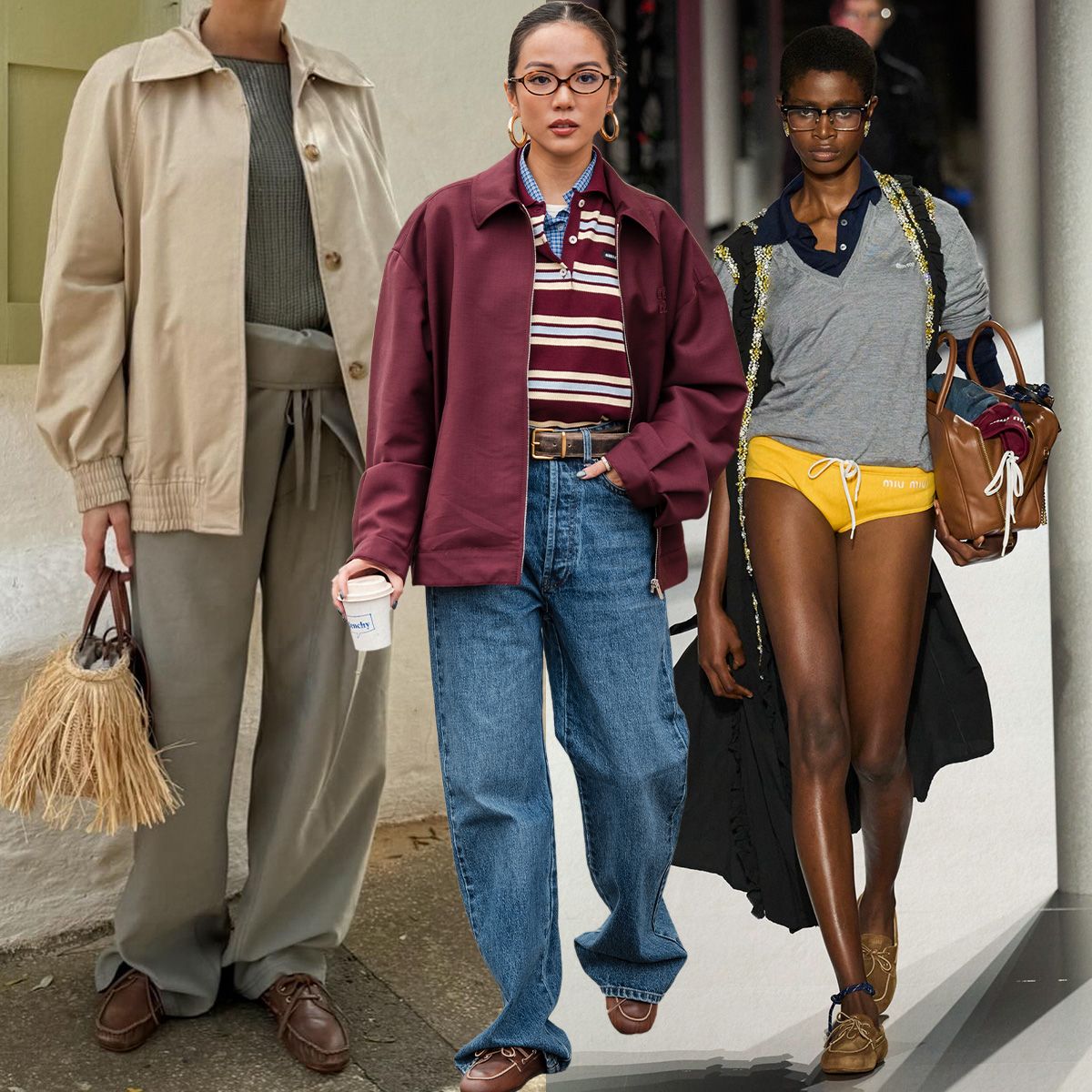Albert Camus, the French novelist and playwright, wrote that “Fiction is the lie through which we tell the truth.” In the surrealist play Jordans, Nigerian American playwright Ife Olujobi uses fiction to underscore the painful truths of what it’s like to be marginalized in the workplace. The play features Jordan, an ambitious Black female assistant working at an event company that’s primarily white. When another Jordan, a Black male manager, gets hired to improve the company’s “image and culture,” Jordan and Jordan find themselves locked in a struggle for professional and personal survival.
The play opens today at New York’s Public Theater, where it was recently extended and will run through May 12.
Jordans is a piercing indictment of race and gender dynamics in the modern workplace. For example, in the first two pages of the play, Jordan (the assistant) has hot coffee poured on her face. Jordan’s agony, and her coworkers’ determination to ignore it, viscerally illustrates what a “microaggression” can feel like at work. To the person experiencing it, it’s an act of violence against their identity. To the witnesses, nothing has happened. The gap between the two is the source of even more pain.
Fast Company chatted with Olujobi about her inspiration for Jordans, the complicated dynamics of being marginalized at work, and the road to better days.
What made you decide to write this play?
I started this when I was 23, and I’m 29 now. It came from experiences that I was having in different workplaces. I went to school for writing, but after that, I was working at different creative places like film production companies or a podcast company. The play started from a place of wanting to explore what it feels like to be the only person of color in the workplace, or one of very few. I started diving beyond my daily experiences into questions like, What is my function here? What do these people actually think of me?
It started to feel like they were getting more out of the arrangement than I was. That’s obviously always true for capitalism, but I was just starting to realize the ways in which my presence was actually benefiting them in ways that I didn’t sign up for. All of a sudden, I’m thrown into the situation where my identities are being co-opted for things beyond my control. Meanwhile, I’m not seeing the benefit from any of that. And I’m also being pigeonholed. I wanted to explore the trade-offs people of color often have to make to succeed, if it’s worth it versus trying to change the system—if that’s even possible.
Jordan and Jordan are both caught in the same system. You highlight this by showing their coworkers confusing them despite the fact they are different genders. Yet instead of being allies, they have a complicated relationship with each other. What dilemmas did you experience and see people of color facing in the workplace with each other?
When I was an assistant, often I’d be the only Black person, or one of two or three Black people. In a couple different places, it was a Black woman working at the front desk, and then a Black man who had a higher-level position. I do have to say, I’ve really latched onto other people of color and they’ve helped me a lot and mentored me. But I think these environments ultimately pit people against each other.
If you are there for your identity to make people money, then you have to outdo each other on how it is to be Black, or whatever minority position you’re in. It forces people to feel like they have to be the only one. That is capitalism forcing us to compete. It benefits the people in charge if we are competing with each other.
What made you decide to use surrealist elements in the play, such as everyone looking away while someone pours hot coffee on Jordan’s face?
I had an experience at a workplace where people left dirty dishes on my desk, and didn’t know my name. The person who ran this workplace was really horrible and did a lot of really horrible things to a lot of people. I realized someone who actually committed crimes against other people and who was violating them can just show up to work every day. It honestly felt surreal in my life to be going, wow, okay, this is going on, I can be in an environment where someone is a grave danger to me and I’m being dehumanized, other people know it’s happening, and no one said anything.
The horror of the play is not the violence that the white characters perpetrate onto the Black characters. The horror actually is that they do it and that nobody cares.
In an effort to do better, many workplaces have brought in DEI programs. However, as budgets have been narrowing, we’ve also seen those programs get the axe. What do you make of this?
I have a lot of questions about the efficacy of DEI programs. I was in the workplace when George Floyd was murdered and they brought in DEI counselors. I think they can be well-intentioned, but I personally have yet to experience them done in a way that I felt made a difference.
I think unfortunately these programs have fed into different systems of racial capitalism. They were instituted by a lot of companies under the guise of helping employees gain greater consciousness and awareness of the racial biases, but now we’re seeing that a lot of them were to provide cover for the people in charge.
The project of education and interrogating your biases is very necessary, and I am 100% for that. I think that’s the impulse of DEI programs and I don’t want to pooh-pooh on that, but I think the way they’ve been implemented has ended up making the majority employee comfortable rather than doing anything that helps.
So what is the road forward to better?
I got involved in conversations about labor justice because that felt like an area that was more concrete. How do we get more people of color in the workplace? How do we get people paid more money? How do we get them benefits? Those things concretely help people of color in the workplace rather than DEI conversations of, Okay, let’s all be nice to each other now. Those don’t feel like tangible goals.
Recognize your brand’s excellence by applying to this year’s Brands That Matter Awards before the early-rate deadline, May 3.







